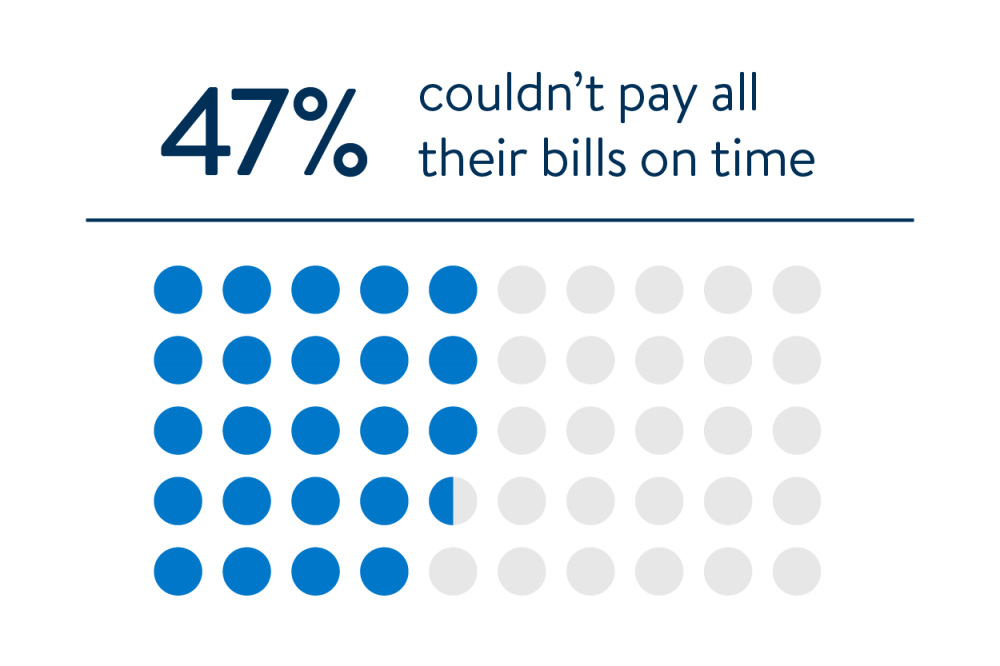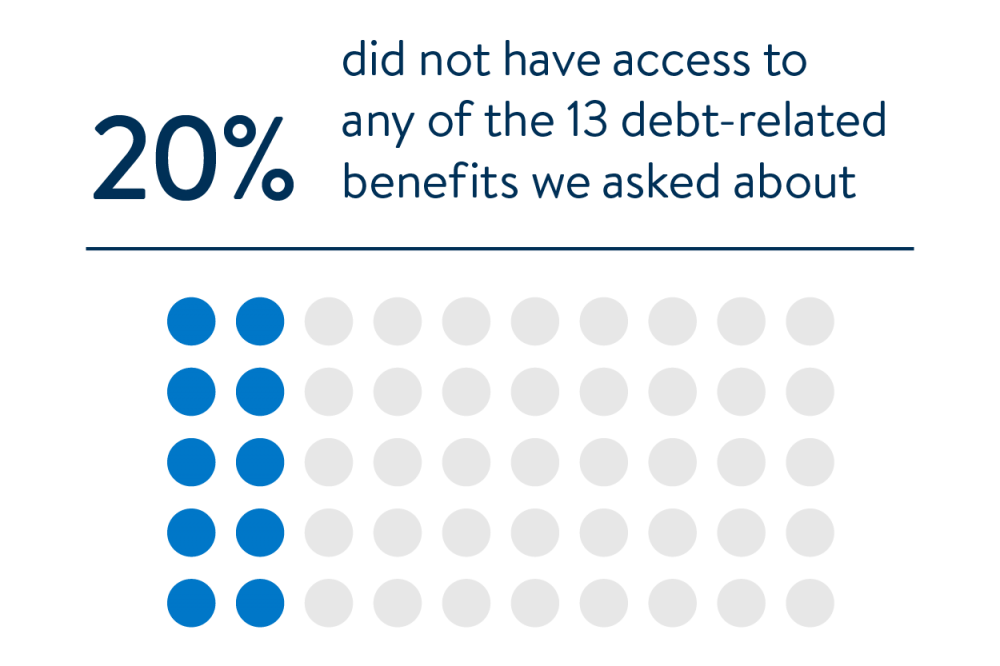Though workplace financial health benefits at many companies have expanded beyond retirement and health insurance, solutions for employees dealing with credit card, medical, or personal loan debt are still uncommon. To shed light on how these kinds of unsecured debt can impact employee well-being and work performance, the Financial Health Network conducted a study of full-time employees working at mid- to large-sized companies – nearly two-thirds (63%) reported unsecured debt. A survey of these 1,058 unsecured debt holders revealed impacts from debt stress at work, lack of access to debt-related benefits, and strong desire for employers to offer better financial tools and support. This brief aims to help employers better understand worker needs, so they can provide debt-related benefits that support a financially healthy and productive workforce.











